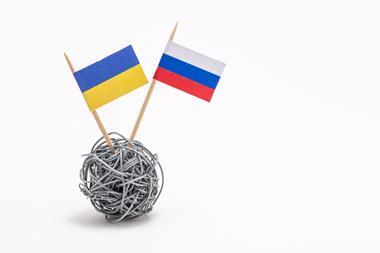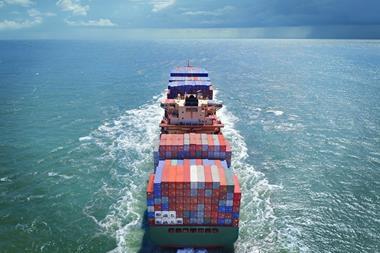Energy prices, supply chain issues, travel disruption, inflation, ESG issues and business continuity are just some of the risks to navigate
The geopolitical landscape has been extremely volatile for some time now, with tensions escalating in the years since the global financial crisis. And while the Russian invasion of Ukraine is the most immediate emergency, it is far from the only issue that should be on risk managers’ radars.
However, the implications of the actions being taken in Ukraine will resonate globally and the potential for this to re-shape the geopolitical landscape must not be underestimated.
The consequences of global instability can be significant even for organisations that do not operate internationally. Energy prices, supply chain issues, travel disruption, instability in financial markets, inflation, ESG issues and business continuity are just some of the risks that firms need to plan for.
Hoe-Yeong Loke, Research manager at Airmic said: “Geopolitics has a bearing on many facets for businesses, ranging from policymaking to economics to consumer sentiments.
“Geopolitical threats can therefore manifest itself through a whole raft of risks, leading to business continuity issues… Just to take the tragic events in Ukraine with the invasion by Russia – that has surfaced the dependencies and geopolitical risks of energy assets and their delivery, wider supply chain fragilities, cyber security risks and of course, risks to people and their lives.”
The other battleground with profound implications for corporates around the world is the virtual world. Firms are being urged to improve cyber resilience as governments anticipate rise in state-sponsored attacks.
Heightened supply chain risks
Atul Vashistha, chairman and CEO of Supply Wisdom and former Department of Defense Board Member, also thinks one of the first impacts could be to supply chains.
“The crisis will impact European countries that Ukraine exports to immediately – especially Germany. Ukraine is a leading exporter of steel, coal, fuel and petroleum products, chemicals, machinery, and transport equipment. Germany depends on Ukraine for many of these commodities.
“Plus, Germany derives most of its energy needs for manufacturing and electricity from Russia’s natural gas. Local manufacturing production could be halted. With Germany as a top producer for many industrial and consumer products across the world, the disruption’s trickle-down effect will sweep the globe.”
£17 billion ($23 billion) of annual Russia exports to the UK will be disrupted by the closure of all UK ports to Russian ships, according to analysis by Russell Group.
The analysis comes as Grant Shapps, the Transport Secretary said in a letter to all UK ports that Russian vessels would not be allowed to any UK ports and any vessel thought to be owned, controlled, chartered, or operated by any person connected with Russia should be barred.
Further sanctions are to be drawn up against Russian shipping firms.
Suki Basi, Russell Group MD, commented on the figures: “With the international community stepping up its response to the Russian invasion of Ukraine through a series of economic sanctions, our analysis shows just how interconnected global trade has now become, with the sanctions impacting both the UK and Russia.
“Being able to access timely, real-time data will ensure that all (re)insurers and their corporate clients have the required tools to navigate and understand their trading landscapes. Data insights that drive more granular analysis is becoming an essential component in a modern company’s arsenal. Actionable insights are opening up new frontiers in risk management.”
From a business continuity perspective, Vashistha thinks corporate risk managers should be continuously evaluating what is a fast-moving conflict.
“It’s critical [for risk managers] to assess which of their own third and fourth parties have exposure to the impacted regions.”
”They also need to know what the next order of impact to supply chains will be to prepare. The focus is on energy right now. Risk managers must have their radar on what risk comes next as a result.”
Oil price surge
Anxiety is rippling through financial markets as oil spikes over $110 a barrel, according to Hargreaves Lansdown. Susannah Streeter, senior investment and markets analyst, said the fear of ‘stagflation’ was taking hold.
”The upward march has been fuelled by warnings from the International Energy Agency that global energy security is now under threat and the release of emergency supplies by members including the US and Japan has done little to calm prices.
”President Biden is under increasing pressure from US lawmakers to suspend crude imports from Russia. Hitting Russia even harder with boycotts will cause sharp ricochet of financial pain but it is a price corporations and politicians believe needs to be paid to try and bring an end to Moscow’s aggression.”
”The worry is that it will do little to break Russia’s immediate resolve, which could lead to a long drawn out economic conflict.”




















No comments yet